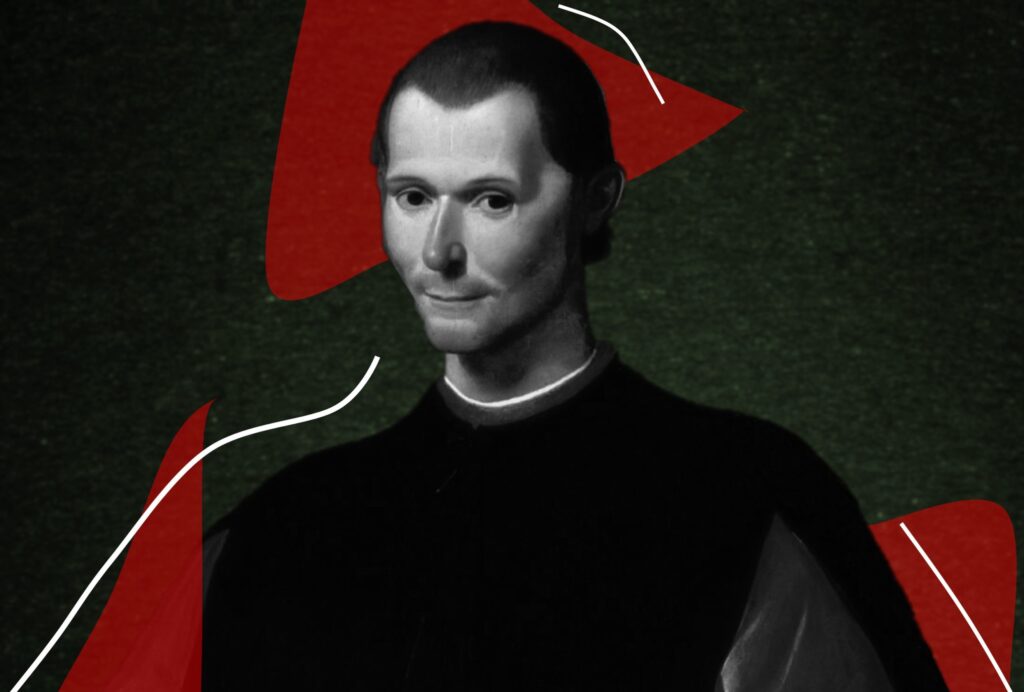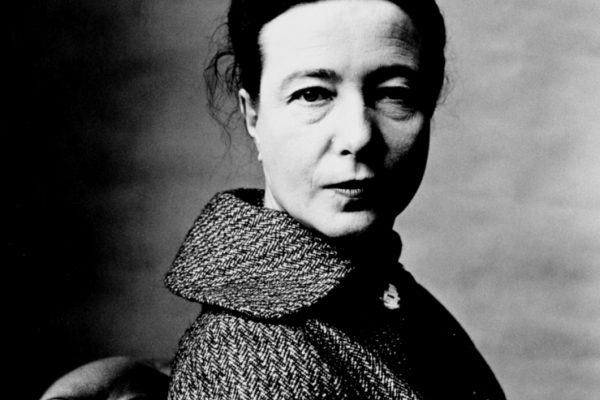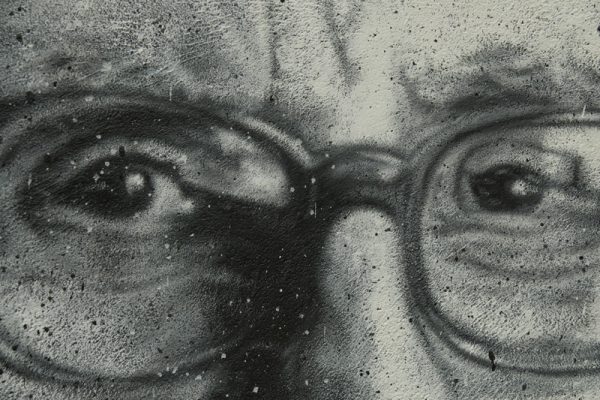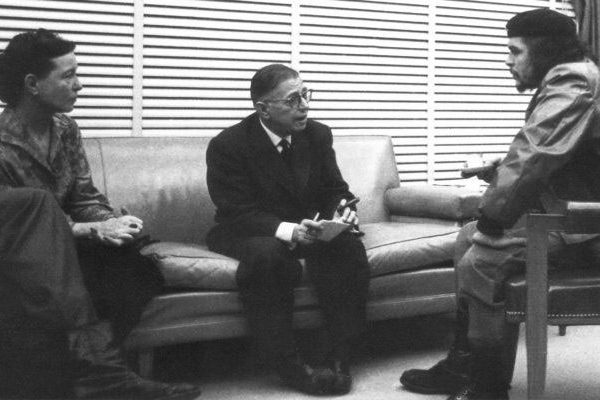Machiavelli: The Art of Teaching the People What to Fear
Patrick Boucheron, translated by Willard Wood
Other Press, $14.99 (paper)
Even if 2020 felt apocalyptic, it is reasonable to think we have not yet hit rock bottom. The threat of climate disaster and resource wars, the building of walls and refugee camps, the exorbitant wealth of powerful oligarchs alongside poverty and precarity—these will not go away with vaccines or new presidents. Amidst all this, no wonder Niccolò Machiavelli has returned to our reading lists. In his new biography of the Florentine Secretary, Machiavelli: The Art of Teaching the People What to Fear, originally published in French in 2017, historian Patrick Boucheron reminds us that there is always interest in Machiavelli in turbulent times “because he’s the man to philosophize in heavy weather. If we’re reading him today, it means we should be worried. He’s back: wake up.”
What really makes Machiavelli’s writing so distinctive is his class-based, materialist outlook.
Born in 1469 in Florence, Machiavelli is a central figure in the Western canon of political philosophy. Though he is best known in the popular imagination as the conniving mastermind behind The Prince (written in 1513), which so many think of as a kind of House of Cards how-to guide for seizing and maintaining political power, we miss what is crucial when we reduce his political thought to the simplistic thesis that the ends justify the means. It is not this misunderstood consequentialism that is noteworthy in Machiavelli’s philosophy; what really makes his writing so radically distinctive is his class-based, materialist outlook. He came from an impoverished household, and his philosophy disrupted naturalized hierarchies and the hegemonic ideas that reproduce them. John Adams would rightly describe him as the founder of a “plebeian philosophy” that marshaled strong arguments for embracing popular control over government.
Though the Machiavellis seem to have had an illustrious past and Niccolò’s father, Bernardo, trained as a lawyer, inherited debts effectively excluded the family from wealth, privilege, and political power. They lived in a deteriorated palazzo on the Via Romana and relied mainly on yields from their farm located at the outskirts of Florence. This relative material deprivation left an imprint on the young Niccolò, who would anchor his political philosophy on a plebeian point of view—giving voice to the claims of those who want to live free from oligarchic domination. In his dedication letter to The Prince, Machiavelli described himself as part of the populace, “a man of low and humble station” who, given his position “low down on the plain,” could discern clearly the nature of those who are “high up on mountain tops.”
Despite his modest upbringing, Machiavelli received a good education and inherited, in addition to his father’s debts, his precious library. Growing up in an oligarchic republic controlled by the Medici—financiers who owned the biggest bank in Europe—he found that a career in public office for someone like him, lacking connections with the grandi, had been foreclosed. But when the Medici were ousted from power in 1494 after losing the war against Charles VIII of France, new possibilities arose. In 1498 Machiavelli was appointed as secretary of the second chancellor of Florence, in charge of the republic’s military forces. During the fourteen years he served the republic, he wrote foreign affairs reports and some poetry on the side, traveled as a diplomatic envoy, and set up a citizen army to replace an expensive and dangerous system of defense that relied on mercenary soldiers paid through loans from the financial oligarchy. But his political trajectory was cut short when the Medici returned to power in 1512. Machiavelli was ousted from his post, tried for conspiracy, tortured, imprisoned, and then relegated to private life in the countryside, which afforded him the time to write his most famous and consequential works—not just The Prince but also the Discourses on the First Decade of Titus Livy (written in 1517) and The Art of War (written in 1519–20)—from the point of view of a political praxis forged in turbulent times.
Perhaps the most important part of Machiavelli’s wisdom for our own time is that republics tend to become oligarchic, giving the powerful few indirect control over government.
As part of his view of a self-aware and socially engaged history, Boucheron offers a Machiavelli who is a “scout”: someone able to think from uncharted and dangerous territory, and thus someone who needs to be read “not in the present but in the future tense.” Boucheron’s forward-looking analysis is anchored in the past—in his studies of the relation between political power and urban transformations in medieval Milan—and aimed at broadening the limits of historical interpretation. In his previous book, Léonard et Machiavel (2008), Boucheron combined historiography and literature, imagining a meeting between Leonardo de Vinci and Machiavelli based on scarce and fragmentary traces of their probable encounters. In the new book he also undertakes a hybrid format in an “attempt to harmonize in style” with Machiavelli’s “art of thinking” by fusing poetry and politics. The result is a series of intimate snapshots of Machiavelli’s life and work. They are not only accurate (even though no sources are cited) but also intriguing and playful. Each of the thirty chapters is only three pages long and is paired with an evocative image—from portraits of Machiavelli, Lorenzo de’ Medici, and friar Girolamo Savonarola to a copy of Machiavelli’s original dedication in The Prince and a picture of Machiavelli’s tomb in the Basilica of Santa Croce.
The introduction to the English edition of The Art of Teaching the People What to Fear, written in June 2019 for readers in the United States, begins with the theme of fear in politics and an issue of Time magazine with Trump on the cover. Boucheron argues that the United States had entered a “Machiavellian moment”—“the dawning realization of the inadequacy of the republican ideal”—in the aftermath of the 9/11 terrorist attacks and that today, under “Trumpian America,” a fusion of politics and fiction has allowed for techniques of domination to be perfected, setting “a general disregard for the ‘actual truth of the matter.’” Referencing George Orwell’s 1984, Boucheron sees the United States as captured by a propaganda machine that has undermined reality and common sense—“that sixth sense Machiavelli spoke of, the accessory knowledge that the people have of what is dominating them.” Given the pervasive lack of realism in U.S. politics today, it is clear that the republic would appear to Machiavelli as a corrupt order, not because the powerful few break the rules or because a faction attempts to undermine the integrity of elections, but because the people have been “either deceived or forced into decreeing their own ruin.” Perhaps the most important part of Machiavelli’s wisdom for our own time is that republics tend to become oligarchic, giving the powerful few indirect control over government.
In the first five chapters of The Art of Teaching People What to Fear, Boucheron blends biographical details and the diverse interpretations of Machiavelli’s work. To illustrate the wide range of interpretations and the general animosity toward the teachings of the Florentine Secretary, he references Émile Littré’s nineteenth-century tendentious description of Machiavelli as an author theorizing “the practice of violence and tyranny used by the petty tyrants of Italy” and as a figure referring to “any statesman lacking principles.” Boucheron also dispels a common misattribution: that is was Jesuit Giovanni Botero and not Machiavelli who invented the concept of “reason of state,” the idea that the state has no law other than self-preservation. The section ends with a crucial chapter on the source of Machiavelli’s materialist thought: Lucretius’s six-book poem De rerum natura, or On the Nature of Things, which comes to disrupt Neoplatonism by discussing a “world that has no creator, where nature constantly reinvents itself.” Just as Lucretius’s dangerous poem “swerves” and “derails the world and knocks it off its hinges,” Machiavelli’s books are allies in revolution.
John Adams would rightly describe Machiavelli as the founder of a “plebeian philosophy.”
A second section discusses Machiavelli’s encounter with the political reality in Florence and his role as a diplomat. Boucheron argues that it was the failure of Savonarola’s regime against vanity and excess that prompted Machiavelli to engage with the themes of leadership, the use of force, and states of emergency, “to take up his political plan at the point where [Savonarola] left off.” During his time in diplomacy, Machiavelli “could observe, discuss, and compare” the inner workings of power in different states, learning “about the speed needed in making decisions, the art of surprising the world around him, and the ruthlessness required of a ruler in conducting politics.” Because he was “always to be disappointed by the statesmen he met,” he was free of the intellectual blunting that is inevitable in those who “become entranced with a powerful figure” and surrender their intelligence. The closest he got to endorsing a leader was with Cesare Borgia, illegitimate son of Pope Alexander VI and brilliant military commander. But after the death of the pope and Borgia’s consequent failure to secure his control over the Romagna, Machiavelli sets him as an example of the weakness that befalls those who are reliant on others rather than on their own resources.
Machiavelli’s downfall and his most famous work, The Prince, are analyzed in the third section. For Boucheron, the most revolutionary element in Machiavelli’s work is his realism, his commitment “to describe accurately how things happen, and to leave the task of drawing up the ensuing rules of action to others.” Boucheron thus reads The Prince as an exercise on typology in which Machiavelli classifies the principalities that have been “conquered, by force, by guile, or by luck: those principalities, in effect, that come under the sway of bold heroes of fortune, new princes.” As for Machiavelli’s “rules of action,” Boucheron writes, they “have no other end than their utility: use them or not according to necessity.” Therefore, a new prince, as an “unscrupulous virtuoso of his own self-preservation,” should always expect “the worst from those he governs.” Even a powerful new prince, backed up by the support of the common people, cannot be secure; conspiracies and treason come with the territory. For Machiavelli, relying only on the love of those who support you is a recipe for disaster.
For Machiavelli, relying only on the love of those who support you is a recipe for disaster.
The following section, “Politics of Writing,” departs from Machiavelli’s political work to focus on his private life and his theater writings. For example, Boucheron offers an analysis of The Mandrake (1524)—a play in which a plebeian, Callimaco, with the help of a friar, seduces Lucrezia, the young wife of Nicia, a senile noble. For Boucheron, the drama is a political allegory in which a corrupt Florence is being robbed of its liberty by the Medici. Boucheron further pursues Machiavelli’s picaresque and dingy edge by following him from the theatrical stage to the brothel. Silently judging, he pairs Machiavelli’s correspondence with his wife, Marietta Corsini, with whom he had five children, with a letter to his friend Luigi Guicciardini in which he describes “his ‘desperate rut’ with an old and atrociously ugly prostitute.” Trying to stay in an indeterminate space, Boucheron attempts to disrupts his own judgment by recognizing that “to present obscenity is to make visible what normally occurs out of sight” and that this means to be “the bearer of bad tidings.” This makes Machiavelli not only a “scout” of dangerous territory but also “an unsavory character,” who disrupts traditional notions of morality. Even if Boucheron seems uneasy with the Florentine Secretary’s deplorable sexual conduct, he dwells in this uncomfortable zone, refusing to shy away from the gruesome features that accompany Machiavelli’s genius.
Leaving behind the home and the brothel, Boucheron dedicates the next section, “Republics of Disagreement,” to an analysis of Machiavelli’s Discourses on the First Ten Books of Titus Livius and his “energetic attempt to derive from the materials of history a practical art of freedom.” From the point of view of democratic politics, this is the most interesting section of this little book. Boucheron describes the republic as a government that takes into account popular opinion, unveiling Machiavelli as a partisan of the people. “The populace can govern,” Boucheron writes, because
it is capable of truth. The people know what they want, or, more accurately, they know what they don’t want: to be dominated. Through this knowledge, the people arrive at the truth, which is the truth of domination.
Within this framework, pro-justice laws are not the result of adequate legislative procedures, but rather the result of conflict, the product of the people’s pushback against domination.
Within this framework, pro-justice laws are not the result of adequate legislative procedures, but rather the result of conflict, the product of the people’s pushback against domination.
While analyzing the strength of republics, Boucheron makes an observation that seems crucial to understanding contemporary popular regimes that have fallen or corrupted due to their own reaction to conspiracy and rebellion. If we take the case of Hugo Chávez in Venezuela, who was elected in a landslide on a redistributive platform and survived an oligarchic coup three years into his presidency, Machiavelli’s insights allow us to understand the process of political action and reaction and their unforeseen effects in the relative strength of the post-coup regime. Thinking with Machiavelli, Boucheron concludes that
coups strengthen the state they are meant to undermine. And yet . . . in making itself stronger, the state makes itself weaker. . . . conspiracies give the prince reason to fear, and fear gives him reason to secure himself, and securing himself gives him reason to harm others, from which arises hatred and, often enough, the prince’s ruin.
Digging deeper into the relation between foundational violence and politics in Machiavelli’s thought, Boucheron states that “coups reveal what states normally keep hidden, which is their constituent violence,” and when this violence is exercised and exposed, the strength of the state, paradoxically, diminishes. A failed coup compels a new prince to fortify himself and engage in preemptive violence; this show of force inevitably weakens the foundations of any good regime, even if it assures its survival.
Although violence can be necessary, this does not mean that Machiavelli thought that the end justifies the means. As Boucheron notes, the Florentine Secretary never wrote those words that made him so infamous. In fact, endorsing this motto would be contrary to his political philosophy. As Boucheron puts it, because Machiavelli’s “philosophy of necessity rests on the principle of the changeableness of the times and the unpredictability of political action,” the end cannot but remain unknown. This view chimes with Machiavelli’s thought, but arguably what remains unknown is not the end itself—understood as the final cause of political action—but rather the success of the enterprise. Machiavelli states that the aim of a new prince is to set republican foundations that would allow plebeians to live in liberty, free from the domination of the oligarchy. Only a lasting constitutional order would justify unlawful and violent means. However, since at the time of the founding there is no way to know if the new order will be able to endure, unlawful action can only be justified ex post facto, after a considerable amount of time has passed. There are no justified, irreproachable means in the present tense, only necessary ones.
By documenting the popular insurrection and its voices, Machiavelli was a trailblazer for historians of social history.
In the final section of this biographical portrait, Boucheron engages with Machiavelli’s final years and describes him as a “public historian” who was commissioned by the Florentine Academy to write “the official chronicle” of the city-state. Following his realist approach to politics, in his History of Florence (published posthumously in 1532), Machiavelli described not only “the full extent of the strife, the discord, the enmity that played out in his city’s politics” but also the plight of plebeians, making visible what usually is excluded from official accounts. When referring to the 1378 revolt of the ciompi (wool workers) that overthrew the government and briefly installed a plebeian revolutionary regime, Machiavelli includes a speech by an anonymous rebellious workman stating the radical equality between nobles and plebeians, “made by nature in the same way.” Presented at turns as the philosophical scout and unsavory fellow, Machiavelli now ends up as public historian, writing a history aimed at “giving equal dignity to the ciompi and the Medici, in giving those who have no voice a hearing, in saying in plain terms that this took place, this was possible.” By documenting the popular insurrection and its voices, by giving it space in the official history, Machiavelli was a trailblazer for historians of social history who attempt to capture multifaceted narratives and to democratize knowledge by bringing the common people into the main storyline.
Machiavelli died rather suddenly in 1527, about a month after Rome was sacked by mutinous troops of Charles V, the Medici were overthrown, and a popular uprising restored the popular Republic in Florence. His works were published a few years later in three volumes, authorized by Pope Clement VII. But the Church’s benediction would not last long. Three decades later, after the “Jesuits orchestrated what amounted to an anti-Machiavellian campaign in Italy,” his works were forbidden. Shortly thereafter his name was turned into an “-ism” that became a synonym of tyranny, and his teachings slowly became “as invisible as a mist.”
Boucheron ends the book by showing how this mist has been gathered in puddles and even streams every time Machiavelli is read “when a storm is threatening”—from the Jacobins during the French Revolution to Antonio Gramsci, Louis Althusser, and the readers of today. As an “awakener” whose thought can lash out, like a raging river, against the fortresses containing “the opacity of representation, what we would call today the fatigue of democracy,” Machiavelli seems a good companion for these turbulent times in which the institutional order is being put into question in the United States and the economic devastation of the pandemic threatens to linger for years to come. “When capsize seems inevitable,” as Boucheron writes, Machiavelli’s realism, irreverence, and commitment to the liberty of the common people can lead us to safe harbor.








